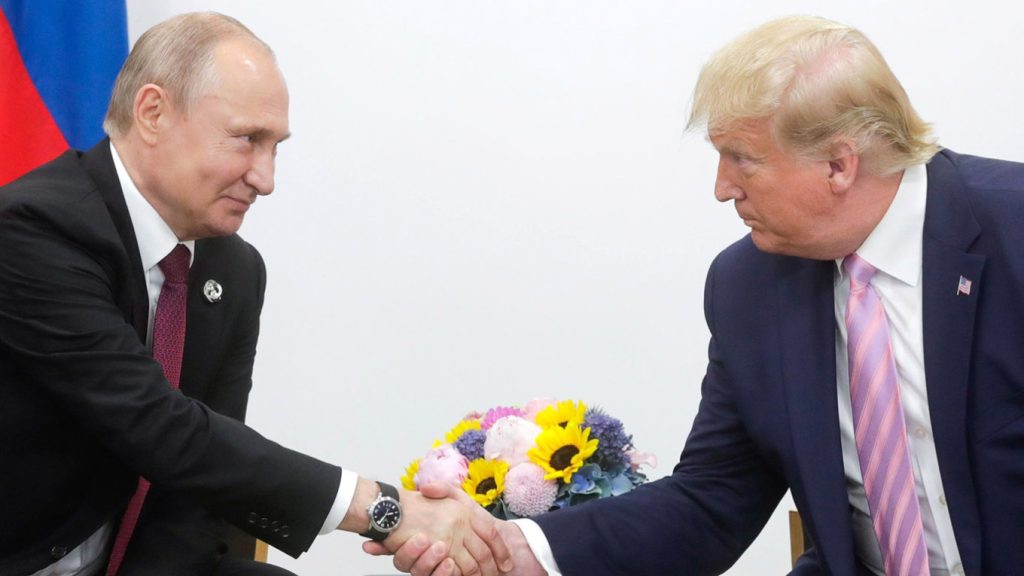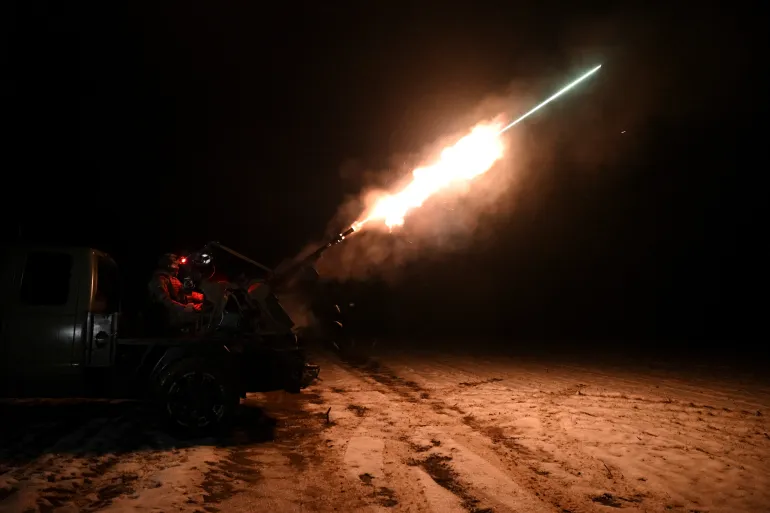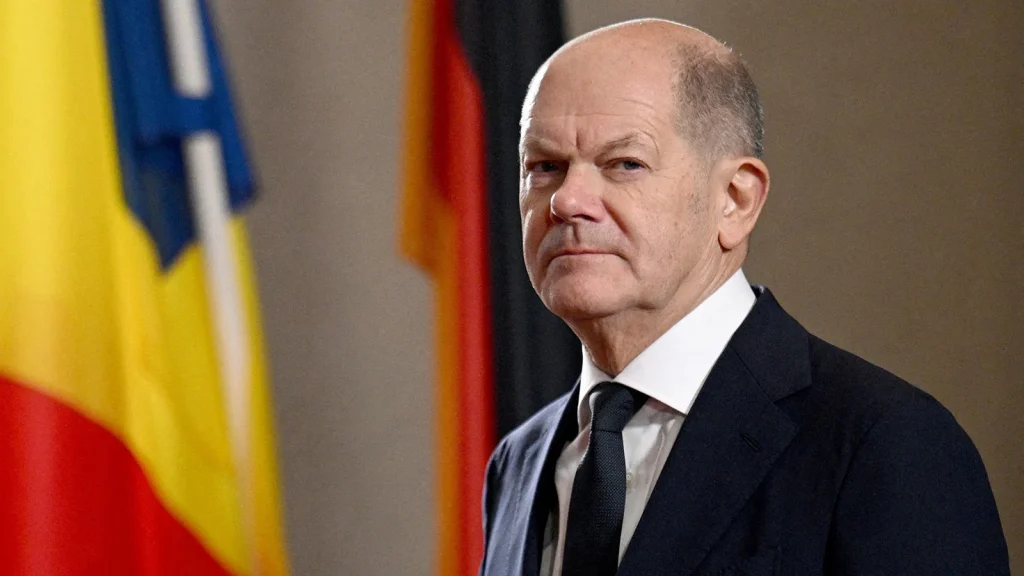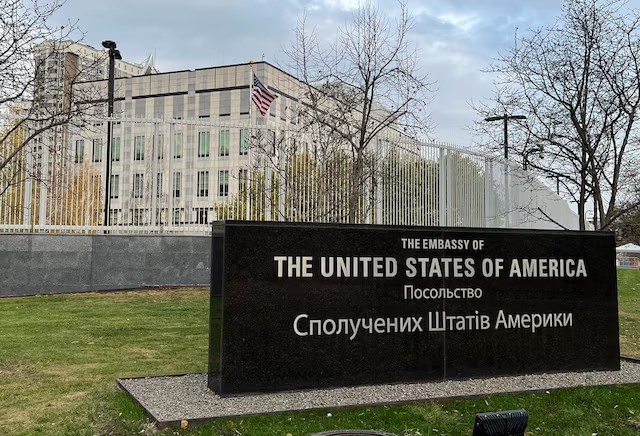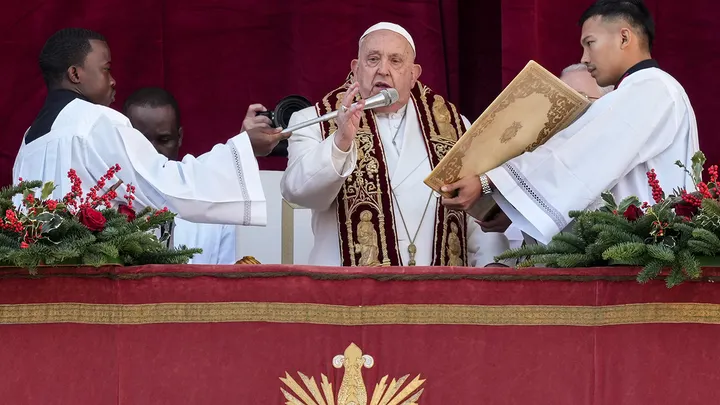Trump tells Putin it’s ‘time to act’ on cease-fire talks with Zelensky
In a recent statement, former U.S. President Donald Trump urged Russian President Vladimir Putin to take immediate steps toward engaging in ceasefire talks with Ukrainian President Volodymyr Zelenskyy. Trump’s comments come amid ongoing tensions in Ukraine, as the war, which began in February 2022, continues to devastate the region, displacing millions and causing widespread destruction.
Trump’s Call for Ceasefire Talks
In a diplomatic push aimed at de-escalating the ongoing conflict, Trump emphasized that the time had come for Putin to engage in serious discussions with Ukraine. He specifically called for a ceasefire, which he believes could serve as a first step toward negotiating a more lasting peace agreement. Trump’s comments reflect a broader viewpoint that has been articulated by some analysts and political leaders, who believe that dialogue, rather than continued military confrontation, offers the best hope for a resolution to the conflict.
“Now is the time for President Putin to act. The human cost of this war is unsustainable, and it’s essential that both sides come together and find a way to halt the violence,” Trump said during a recent interview. The former president’s comments also align with his previous stance that the U.S. should have played a more active role in mediating between Russia and Ukraine early in the conflict.
While Trump’s remarks come from a position of advocating for peace, they have been met with a mix of skepticism and support. Some international analysts view this as a call for pragmatic diplomacy, while others question whether Russia is genuinely willing to engage in peace talks.
Context of the Conflict
The war between Russia and Ukraine has been one of the most significant geopolitical crises in recent history. Russia’s invasion of Ukraine, launched in February 2022, led to widespread global condemnation, resulting in economic sanctions on Russia and substantial military and humanitarian aid flowing into Ukraine. Despite numerous calls for peace talks, the conflict has continued to rage, causing massive loss of life and economic disruption both in Ukraine and globally.
Ukraine, under President Zelenskyy’s leadership, has resisted calls for capitulation and continued to fight back against Russian forces with support from Western nations. The U.S. and its allies have provided Ukraine with military equipment, financial assistance, and intelligence, all of which have played a crucial role in the country’s defense.
However, as the war continues, international pressure has mounted for both sides to find a diplomatic resolution. The humanitarian crisis has deepened, with millions of civilians displaced and thousands killed or injured in the fighting. The economic toll on Russia has also been severe, with Western sanctions crippling the Russian economy and cutting off access to international markets.
The Role of the U.S. in the Peace Process
During his presidency, Trump often expressed his desire for the U.S. to take a more hands-off approach to foreign conflicts, and his administration emphasized reducing American involvement in overseas military operations. This included calling for a more isolationist approach and questioning the efficacy of continued U.S. intervention in global conflicts.
In the context of the Russia-Ukraine war, Trump’s position on ceasefire talks suggests he is advocating for a more direct American role in brokering peace negotiations. By urging Putin to engage in discussions with Zelenskyy, Trump is signaling that the U.S. could play a central role in facilitating a peace agreement, similar to its role in other historic negotiations like the Camp David Accords.
While Trump’s stance on the conflict has varied over time, his recent call for a ceasefire reflects his consistent emphasis on diplomacy. Trump has previously stated that, had he remained in office, the war would not have escalated to its current level, suggesting that his approach to foreign policy would have resulted in a quicker resolution.
Zelenskyy’s Position
Ukraine, on the other hand, has consistently maintained that it will not negotiate with Russia under current conditions, with Zelenskyy making it clear that any peace agreement must include Russia’s full withdrawal from Ukrainian territory. This includes not only the territory occupied since the invasion in 2022 but also the regions that Russia has annexed over the years, such as Crimea.
Zelenskyy’s position is backed by many in the international community, who argue that allowing Russia to retain any Ukrainian land would embolden future aggressions and set a dangerous precedent in international relations. The idea of negotiating a peace settlement under duress or with territorial concessions is seen as unacceptable to the Ukrainian government.
However, Zelenskyy has expressed a willingness to engage in talks if Russia shows a genuine commitment to peace, including halting its attacks and withdrawing from occupied territories. In previous statements, he has called for a return to diplomacy, but on his terms — with the restoration of Ukraine’s sovereignty intact.
International Reactions
Trump’s call for a ceasefire has received mixed reactions from international leaders. Some, particularly from Russia and its allies, have voiced support for such a move, viewing it as a potential breakthrough in a deadlocked situation. Others, however, have criticized Trump’s remarks, suggesting that any ceasefire agreement would only reward Russia for its aggression and embolden the Kremlin to continue its expansionist ambitions.
In contrast, many Western leaders, particularly those in the European Union and NATO, have largely resisted calls for a ceasefire that could freeze the conflict in place. They worry that a ceasefire might offer Russia an opportunity to regroup and resupply its forces, which could then be used to launch further offensives against Ukraine. NATO’s commitment to supporting Ukraine has remained strong, with the alliance continuing to provide arms, financial aid, and intelligence.
The U.S. government under President Joe Biden has also taken a firm stance against allowing a ceasefire unless it includes concrete steps toward Russian withdrawal from Ukrainian territory. Biden has maintained that Ukraine’s territorial integrity is non-negotiable, and his administration has worked closely with NATO partners to ensure continued support for Ukraine’s defense.
As the war in Ukraine rages on, the global community remains divided on how best to handle the situation. Trump’s comments about ceasefire talks have introduced an element of unpredictability into the ongoing discourse, particularly as the former president prepares for a potential political comeback. His influence on the U.S. political scene remains significant, and his calls for diplomacy could shape future discussions on how to address the crisis in Ukraine.
While a ceasefire remains a distant possibility, the ongoing dialogue about the need for a negotiated settlement is important. The war has already had devastating consequences for both Ukraine and Russia, as well as for global stability. The international community must continue to explore ways to bring about a peaceful resolution to the conflict while ensuring that justice and accountability are upheld.
Ultimately, whether or not ceasefire talks materialize will depend on the willingness of both parties — Russia and Ukraine — to negotiate. It will also depend on the international community’s commitment to ensuring that any peace agreement is fair, just, and preserves the sovereignty of Ukraine. As the situation continues to evolve, the world watches closely for any signs of a breakthrough that could bring an end to the suffering and destruction caused by this brutal war.


